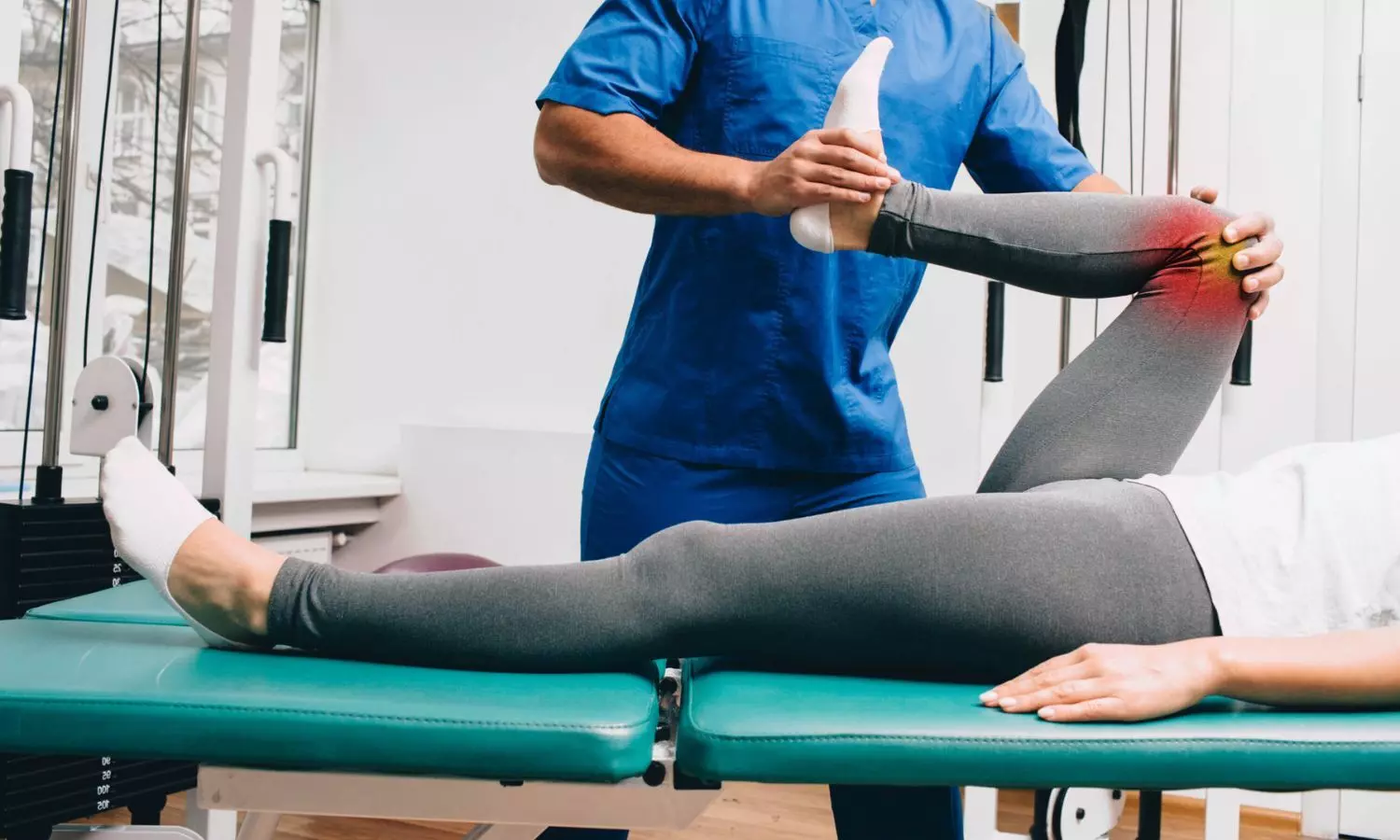Remote physical therapy yields comparable results to in-person therapy post knee surgery for same-day discharge patients: Study

USA: In a groundbreaking development, a recent randomized clinical trial has unveiled promising findings regarding remote physical therapy programs for patients undergoing total knee arthroplasty (TKA). The study, published in the Journal of Arthroplasty, challenges traditional notions of in-person, supervised therapy post-surgery.
The study found that compared to patients in the electronic remote perioperative management (ERPM) + outpatient physical therapy (OPT), patients in the ERPM + remote physical therapy (RPT) had lower costs, similar outcomes, and saved time after same-day discharge (SDD) total knee arthroplasty (TKA).
Comparing remote physical therapy to traditional outpatient physical therapy following same-day discharge TKA, researchers found no major differences in outcomes between the two groups.
"At the 6, 12 & 52-week follow-ups, the RPT group showed comparable knee range of motion, functional assessments, pain scores, and satisfaction levels to those receiving OPT, with lower time investment & financial burden," the researchers reported.
A growing number of TKA patients are candidates for same-day discharge. Previous research has shown equivalent outcomes of internet-based remote physical therapy to supervised outpatient physical therapy after TKA. Considering this, Thomas L. Bradbury, Advanced Center for Joint Surgery, and Northside Hospital Forsyth, Cumming, Ga, and colleagues sought to compare outcomes between OPT and RPT in patients undergoing SDD TKA using an electronic remote perioperative management program.
For this purpose, the study enrolled patients undergoing SDD TKA in an ERPM program. They were randomized to ERPM + OPT or ERPM + RPT. Preoperative and 6-week functional assessments included timed up and go (TUG), knee range of motion (ROM), and 4-meter gait speed.
At 6 and 12 weeks, Numerical Rating Scale (NRS) pain scores were evaluated preoperatively, and satisfaction was assessed at 6, 12, and 52 weeks postoperatively. Participants completed the Knee Injury and Osteoarthritis Outcome Score (KOOS, Jr.) and Veterans Rand 12 Item Health Survey (VR-12 MCS/PCS) preoperatively and at 6, 12, and 52 weeks postoperatively. Outpatient PT utilization was collected 90 days postoperatively.
The study led to the following findings:
· Out of 197 initially randomized patients, 76 remained in the ERPM + RPT group and 95 in the ERPM + OPT group after withdrawals and crossovers.
· Baseline characteristics showed no significant differences between the two groups.
· No clinically relevant differences were observed in knee ROM, NRS pain, patient-reported outcomes, functional assessments, or satisfaction at any follow-up time.
· Participants in the ERPM + OPT group attended an average of 11.57 PT sessions, incurring a total cost of $462.8 and 133 minutes of travel.
· The ERPM + RPT group experienced no expenses or travel time.
As the healthcare landscape continues to evolve, embracing innovations such as remote physical therapy could play a pivotal role in improving patient outcomes, enhancing healthcare accessibility, and ultimately transforming the delivery of rehabilitative care.
"There is a need for further analysis to determine predictive indicators for crossovers," the researchers concluded.
Reference:
Bradbury TL, McConnell MJ, Whitacre D, Naylor B, Gibson B, DeCook C. A Remote Physical Therapy Program Demonstrates Similar Outcomes Compared to In-Person, Supervised Physical Therapy after Same-Day Discharge Total Knee Arthroplasty: A Randomized Clinical Trial. J Arthroplasty. 2024 May 18:S0883-5403(24)00512-6. doi: 10.1016/j.arth.2024.05.040. Epub ahead of print. PMID: 38768768.
from Medical News, Health News Latest, Medical News Today - Medical Dialogues | https://ift.tt/12Bn3Qr
Comments
Post a Comment